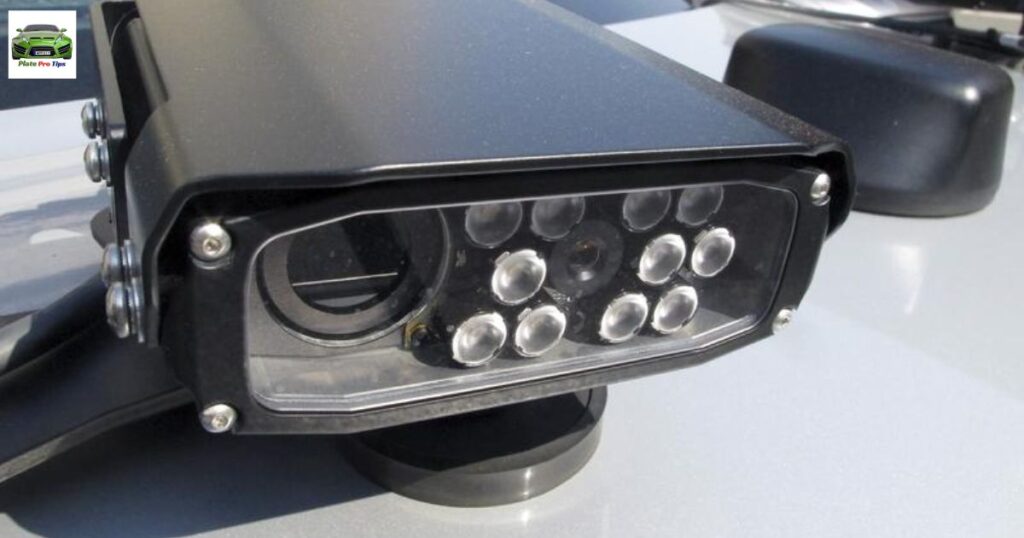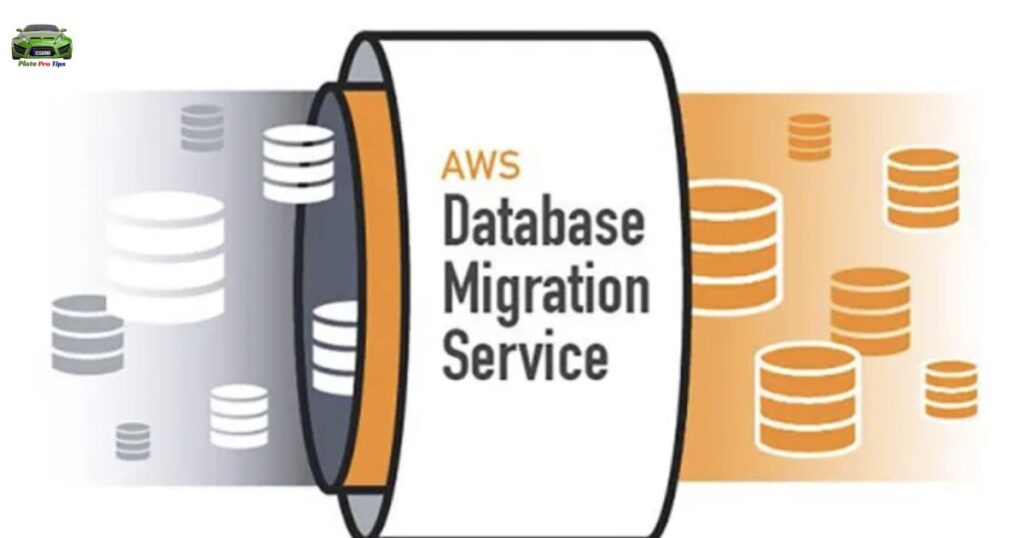In today’s interconnected world, our vehicles’ license plates serve as more than just identification. They’re a gateway to a wealth of information, and sometimes, that information includes reports filed against them. Whether you’re curious, concerned, or simply doing your due diligence, knowing how to look up if someone has reported your license plate can be invaluable. This guide will walk you through the process, explaining the ins and outs of license plate reports and how to access this crucial information.
Understanding License Plate Reports
License plate reports are formal records of incidents or concerns associated with a particular vehicle, identified by its unique license plate number. These reports can stem from various sources and reasons, ranging from minor traffic infractions to more serious allegations. Put Clear Tape On License Plate.
Types of License Plate Reports

- Traffic Violations: Speeding, illegal parking, running red lights
- Criminal Activity: Vehicle used in a crime or suspected criminal activity
- Accidents: Involvement in road accidents, hit-and-runs
- Suspicious Activity: Unusual behavior or patterns reported by citizens or law enforcement
- Environmental Concerns: Excessive emissions or noise pollution
It’s crucial to understand that a report doesn’t necessarily imply guilt or wrongdoing. Reports are often initial flags that require further investigation to substantiate.
“A license plate report is merely the beginning of an inquiry, not its conclusion.” – Traffic Law Enforcement Manual
The Importance of Checking Reports
Knowing if your license plate has been reported can be beneficial for several reasons:
- Early Warning System: It can alert you to potential legal issues before they escalate.
- Identity Protection: It helps ensure your vehicle isn’t being used without your knowledge.
- Peace of Mind: Regular checks can provide reassurance, especially if you’ve recently acquired a used vehicle.
- Dispute Resolution: It allows you to address and potentially refute false reports promptly.
Accessing License Plate Databases

To look up reports on your license plate, you’ll need to access specific databases. These databases vary by jurisdiction and the type of information you’re seeking.
Types of Databases
- State Department of Motor Vehicles (DMV) Records: Often the primary source for official vehicle records.
- Law Enforcement Databases: Typically restricted to official use but may be accessible through formal requests.
- Private Databases: Third-party services that aggregate publicly available information.
- Insurance Company Records: May contain information about accidents and claims.
Accessing Official Records
Most states in the US allow vehicle owners to request their own records from the DMV. Here’s a general process:
- Visit your state’s DMV website
- Look for a section on ‘Vehicle Records’ or ‘License Plate Lookup’
- Follow the instructions to request your records
- Provide necessary identification and pay any required fees
- Wait for processing (timeframes vary by state)
Note: Some states may require you to submit requests in person or by mail.
Private Database Services

Several online services offer license plate lookups, often aggregating data from multiple sources. While convenient, it’s important to verify the legitimacy and accuracy of these services.
Popular private database services include:
- Car Fax
- VIN Check
- Auto Check
| Service | Pros | Cons |
| Carfax | Comprehensive vehicle history | Fee-based service |
| VI Check | Free for basic info | Limited to certain types of reports |
| Auto Check | Includes auction and wholesale info | Subscription required for full access |
Steps to Retrieve License Plate Information
Now that we understand what license plate reports are and where to find them, let’s break down the process of actually retrieving this information:
- Gather Your Information:
- Your full name
- Your license plate number
- Your Vehicle Identification Number (VIN)
- Your driver’s license number
- Choose Your Method:
- Online through official state portals
- In-person at your local DMV office
- Via mail by sending a formal request
- Through a reputable third-party service
- Submit Your Request:
- Fill out the necessary forms
- Provide proof of identity and vehicle ownership
- Pay any required fees
- Wait for Processing:
- Processing times vary, ranging from immediate (for some online services) to several weeks for mail-in requests
- Review the Information:
- Carefully read through the provided report
- Look for any unfamiliar entries or discrepancies
- Follow Up if Necessary:
- If you find concerning information, contact the relevant authorities for clarification or to dispute inaccuracies
Case Study: The Importance of Regular Checks
John, a small business owner, regularly checked his company vehicles’ license plate reports. During one routine check, he discovered a report of a hit-and-run associated with one of his vans. Upon investigation, John found that an employee had been involved in a minor accident but failed to report it. By catching this early, John was able to address the situation with his insurance company and avoid potential legal complications.
This case underscores the value of proactive license plate checks, especially for business owners or those managing multiple vehicles.
Remember, staying informed about your license plate status is not just about addressing potential issues—it’s about maintaining your peace of mind and ensuring the integrity of your vehicle’s record.
Interpreting Reported License Plate Data
Once you’ve obtained your license plate report, it’s crucial to understand what the information means. If someone has reported your license plate, the consequences can vary widely depending on the nature of the report.
Common Report Types and Their Implications

- Traffic Violations:
- May result in fines or points on your driving record
- Example: “If someone reports your driving as reckless, you might receive a citation”
- Hit and Run Reports:
- Can lead to serious legal consequences
- “Will cops come to your house for a hit and run? In many cases, yes, especially if there’s substantial evidence”
- Suspicious Activity:
- Might trigger a police investigation
- “What happens if someone reported your license plate number to the police for suspicious behaviour? They may conduct a preliminary investigation”
- Mistaken Identity:
- Sometimes, reports are filed in error
- “Can you get in trouble if someone reports your license plate mistakenly? While possible, you can usually clear up misunderstandings”
“Remember, a report is not a conviction. You have the right to dispute any inaccurate information.” – Legal Aid Society
Reasons Behind License Plate Reporting
Understanding why people report license plates can help you navigate potential issues:
- Witnessing a Crime: Someone might report a plate if they believe the vehicle was involved in criminal activity.
- Traffic Disputes: Road rage incidents often lead to plate reporting.
- Parking Conflicts: Neighbours might report vehicles parked illegally or causing obstruction.
- Environmental Concerns: Vehicles emitting excessive smoke or noise may be reported.
- Mistaken Identity: Sometimes, people report the wrong plate due to similar-looking vehicles.
What to do if someone took a picture of your license plate:
If you notice someone photographing your plate, don’t panic. In most cases, they can’t do much with just this information. However, if you’re concerned:
- Ask politely why they’re taking the photo
- If you feel threatened, move to a safe, public area
- Document the incident if you believe it’s part of harassment
Addressing Concerns About Reported License Plates
If you discover a report against your plate, take these steps:
- Stay Calm: Remember, a report doesn’t equate to guilt.
- Gather Information: Collect all details about the report.
- Contact Authorities: Reach out to the relevant department for clarification.
- Provide Evidence: If the report is false, present evidence to support your case.
- Seek Legal Advice: For serious allegations, consult a lawyer.
Ensuring Accuracy in License Plate Records
Maintaining accurate records is crucial. Here’s how:
- Regularly check your driving record
- Update your address with the DMV promptly
- Report lost or stolen plates immediately
- Keep records of any disputes or corrections
Legal Implications of License Plate Reports
The legal landscape surrounding license plate reports can be complex:
- Privacy Laws: Vary by jurisdiction but generally protect against misuse of personal information
- False Reporting: Can lead to legal consequences for the reporter
- Data Protection: Governs how your information can be used and shared
Case Study: The Reddit Phenomenon
“What happens if someone reports your license plate Reddit?” became a trending topic after a user shared their experience of being wrongly accused of a hit-and-run. The community’s response highlighted the importance of dash cams and knowing your rights. The incident sparked a broader discussion about the reliability of eyewitness reports and the need for thorough investigations.
Protecting Privacy with License Plate Information
In an age where “if someone takes a picture of your license plate what can they do” is a common concern, protecting your privacy is paramount:
- Limit Personal Information: Be cautious about displaying identifying information on your vehicle.
- Use Privacy Shields: Some jurisdictions allow privacy shields on license plates.
- Be Aware of Your Surroundings: Pay attention to who might be observing your vehicle.
- Understand Your Rights: Know the laws regarding license plate photography and reporting in your area.
Resources for License Plate Investigations
For those looking to delve deeper into license plate lookups and related topics:
- Official DMV Websites: Your state’s Department of Motor Vehicles is the primary source for official records.
- National Motor Vehicle Title Information System (NMVTIS): A federal database that provides vehicle history information.
- Legal Aid Organizations: Can provide guidance on dealing with false reports or legal issues.
- Consumer Protection Agencies: Offer resources on protecting your personal information.
| Resource | Type of Information | Accessibility |
| DMV | Official records | Varies by state |
| NMVTIS | Vehicle history | Public access |
| Legal Aid | Legal advice | Free for eligible individuals |
| Consumer Protection | Privacy guidelines | Public access |
FAQ,s
Can I get in trouble if someone reports my license plate for reckless driving in California?
Yes, if reported, law enforcement may investigate and take action based on evidence and witness statements.
What to do if your number plate falls off in the UK?
Report it to the DVLA immediately and replace the number plate to avoid fines or potential misuse.
How to replace a number plate?
Order a new one from a registered number plate supplier, ensuring you provide proof of identity and vehicle ownership.
How do I report a stolen number plate in the UK?
Contact the police to report the theft, then notify the DVLA and your insurance company.
What is the penalty for stealing a license plate in California?
Penalties can include fines, imprisonment, or both, depending on the severity and circumstances of the theft.
Conclusion
Understanding how to look up if someone reported your license plate is an essential skill in today’s world. Whether you’re addressing a specific concern or simply staying informed, this knowledge empowers you to protect your interests and maintain the integrity of your driving record. Remember, information is power, but it’s how you use that information that truly matters

I’m Shoaib, a passionate blogger with 5 years of experience. I love writing about tech. My goal is to share useful information and insights with you. Explore my website to discover exciting content on various topics!




